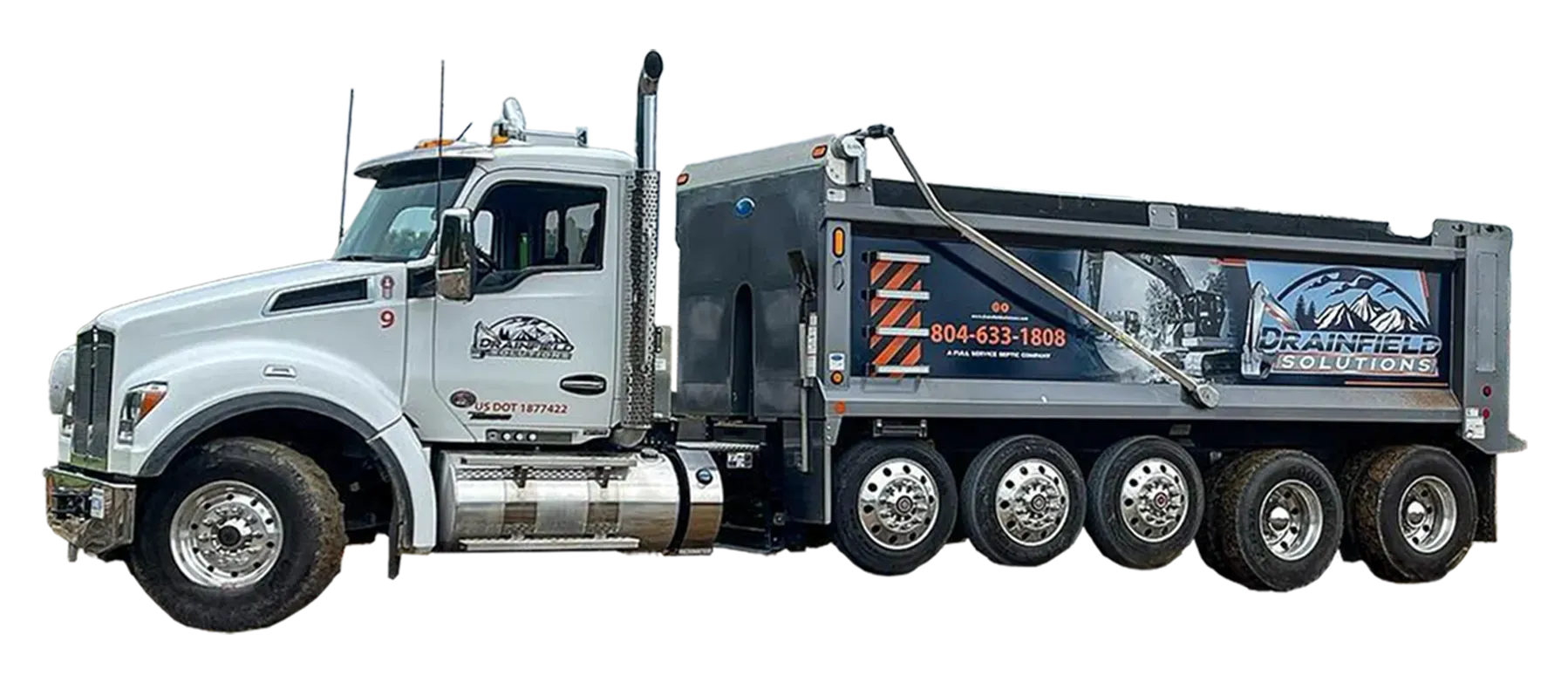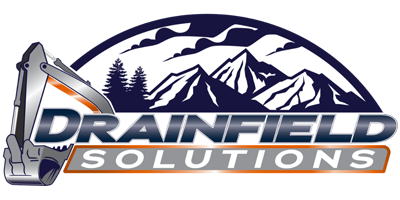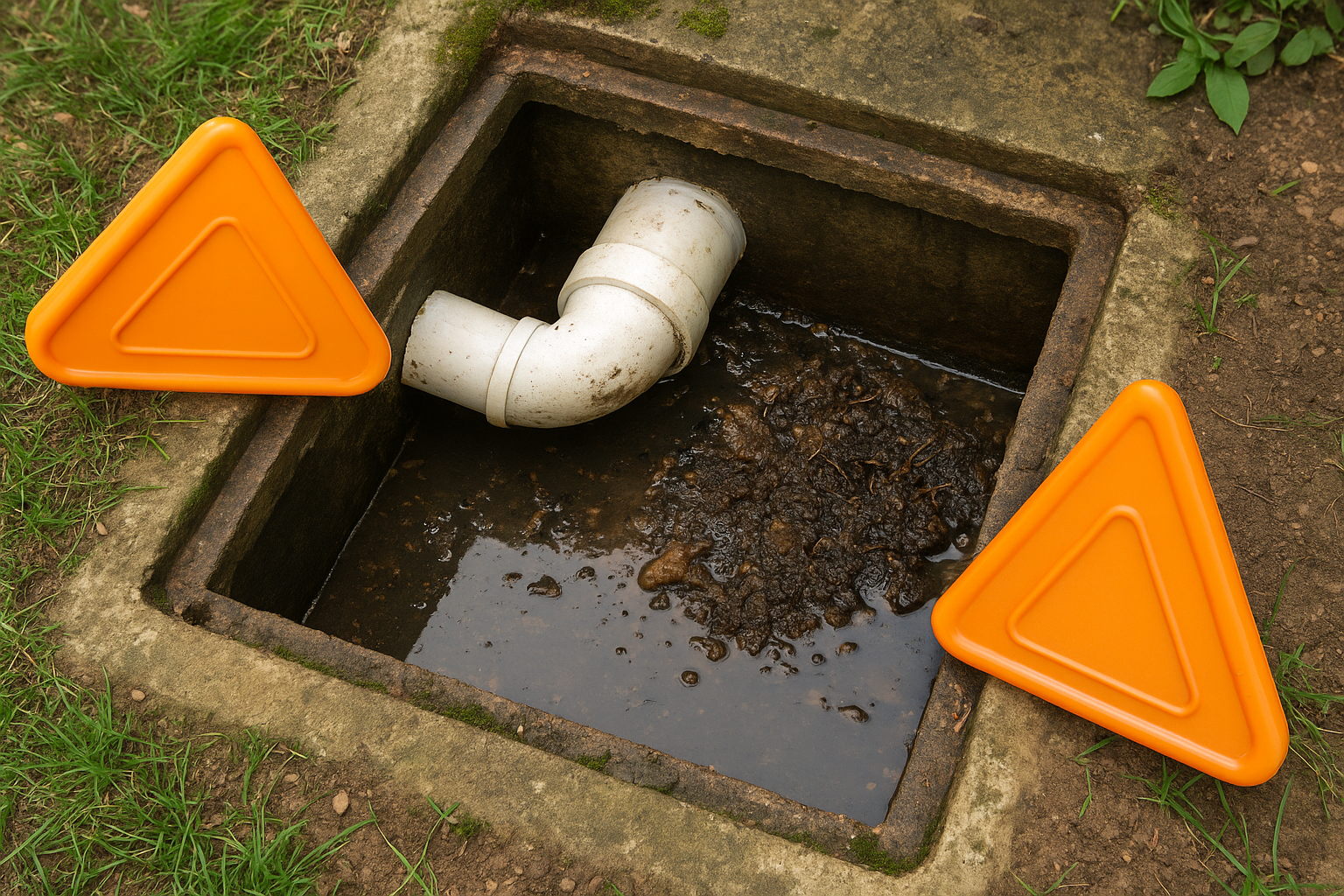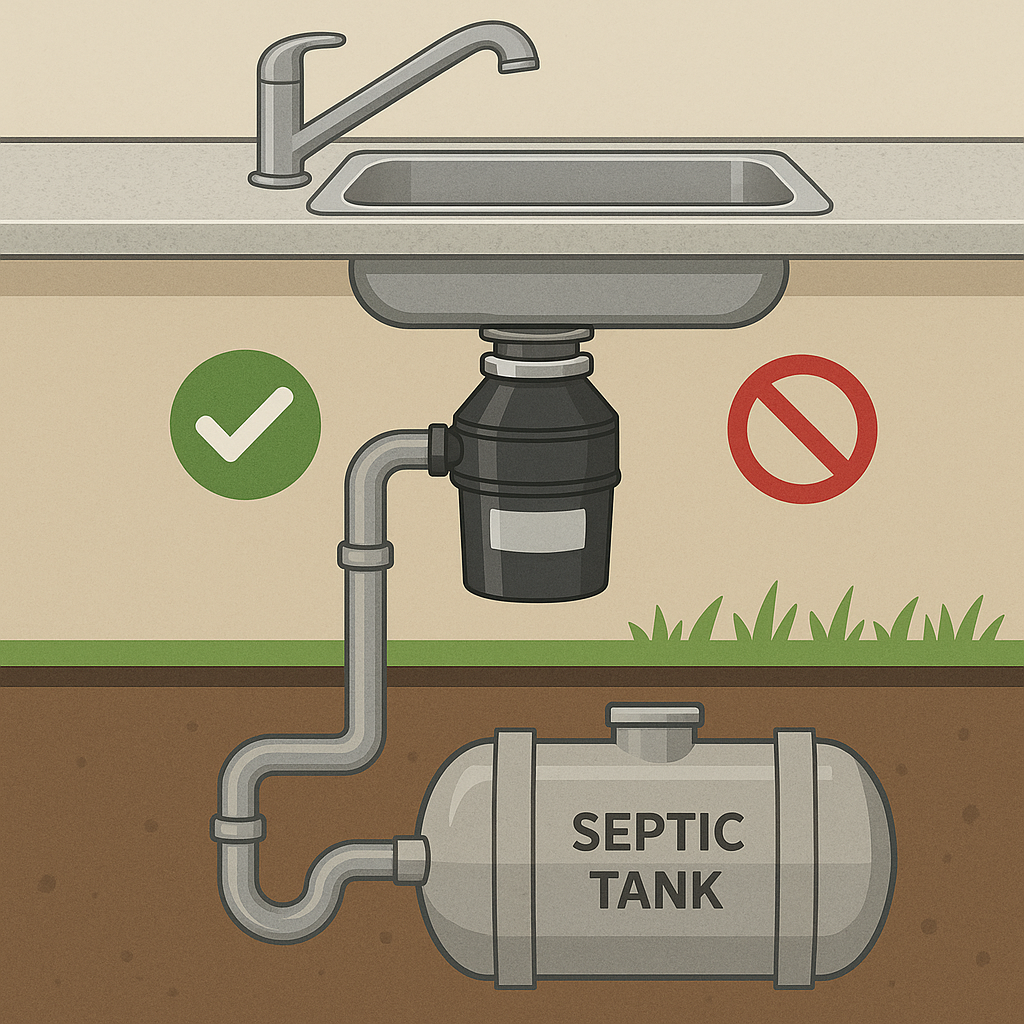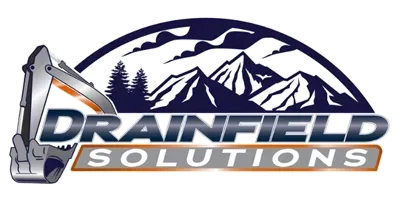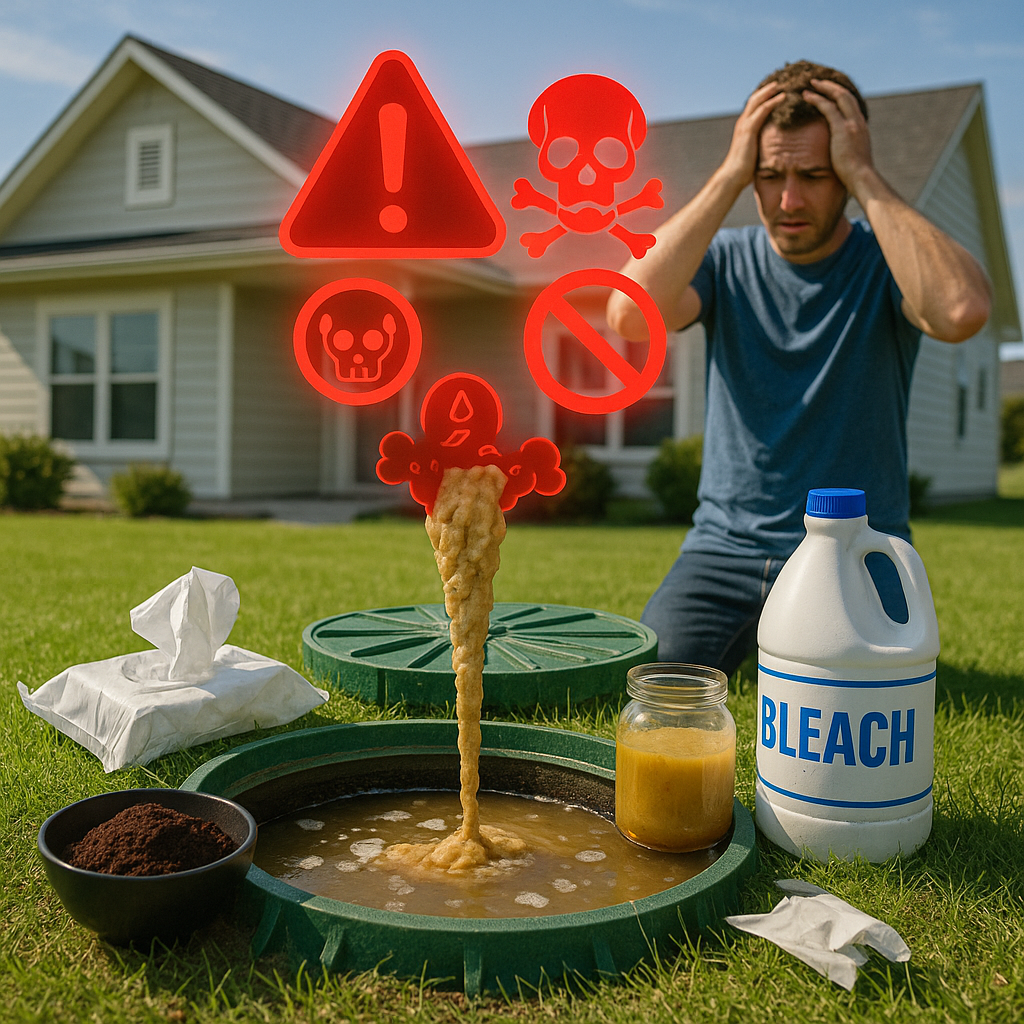
The Top 10 Worst Things for a Septic System
June 8, 2025
What is the Worst Thing for a Septic System?
A septic system is a crucial part of any home not connected to a municipal sewer system. It efficiently processes household wastewater, allowing solids to break down while safely filtering liquid waste into the drain field. However, improper usage can lead to costly septic drain field repairs, drain field issues, and environmental hazards. Understanding what damages a septic system is key to keeping it functioning properly for years to come.
The Worst Things for a Septic System
While many factors can harm a septic system, some are far more damaging than others. Here are the most harmful things that can compromise your septic system’s efficiency and longevity:
1. Flushing Non-Biodegradable Items
Your septic system is designed to handle human waste and toilet paper—nothing more. Flushing anything else can lead to clogs, backups, and expensive septic system repairs. Some of the worst offenders include:
- Baby wipes (even if labeled as “flushable”)
- Feminine hygiene products
- Paper towels and napkins
- Dental floss
- Cotton swabs
- Cigarette butts
- Diapers
- Cat litter
These materials do not break down in the septic tank and can accumulate, leading to blockages in pipes and the drain field. For a full list of items you should never flush, check out this guide from the U.S. Environmental Protection Agency.
2. Excessive Water Usage
Your septic system is designed to handle a specific amount of water daily. Overloading it with excessive water can prevent solids from settling in the septic tank, causing them to flow into the drain field and clog it. This can result in slow drainage, backups, and potential septic system failure.
Ways to reduce excessive water usage include:
- Spacing out laundry loads throughout the week
- Installing low-flow toilets and showerheads
- Fixing leaks promptly
- Avoiding long showers
3. Harsh Chemicals and Cleaning Products
Septic systems rely on beneficial bacteria to break down waste. Using harsh chemicals can kill these bacteria, disrupting the system’s natural process and leading to inefficiency or failure. The following products are especially harmful:
- Bleach
- Antibacterial soaps
- Drain cleaners
- Ammonia-based cleaners
- Pesticides and herbicides
- Paint thinners and solvents
Instead, opt for septic-safe cleaning products or natural alternatives like vinegar and baking soda. For more information on how to protect your system’s bacteria, watch this YouTube video.
4. Grease and Cooking Oils
Pouring grease, fats, and oils down the drain is one of the worst things you can do to your septic system. These substances harden as they cool, creating blockages in pipes and forming a thick scum layer in the septic tank. Over time, this can lead to clogs and backups that require costly repairs.
To properly dispose of grease:
- Pour it into a container and throw it in the trash once it solidifies.
- Wipe greasy dishes with paper towels before washing them.
- Use strainers in sinks to catch food particles and oils.
5. Driving Over the Drain Field or Septic System
Septic tanks and drain fields are buried underground, but they are not designed to withstand the weight of heavy vehicles or equipment. Driving over your septic system can:
- Crack pipes
- Crush the septic tank
- Compact the soil in the drain field, preventing proper wastewater absorption
Avoid parking or placing heavy objects over your septic tank or drain field. If you need to build a structure near your system, consult a septic professional for guidance. The bottom line is do not drive over your drain field or leach field.
6. Tree and Shrub Roots
Planting trees or shrubs too close to your septic system can result in root intrusion. Tree roots naturally seek out moisture and nutrients, making septic pipes and drain fields an easy target. Over time, roots can:
- Crack or block pipes
- Damage the septic tank
- Reduce the drain field’s ability to filter wastewater
To prevent root intrusion:
- Plant trees at least 50 feet away from your septic system.
- Choose slow-growing, non-invasive plants near the drain field.
- Regularly inspect for signs of root damage, such as slow drainage or gurgling pipes.
For more information on landscaping near septic systems, see this document from the University of Florida.
7. Skipping Regular Septic Maintenance
Routine maintenance is essential for a healthy septic system. Neglecting inspections and septic tank pumping can lead to sludge buildup, drain field clogs, and septic system failure.
Recommended maintenance includes:
- Septic Tank Pumping – Every 3-5 years, depending on usage.
- Routine Inspections – Every 1-3 years to catch potential problems early. The state of Virginia requires septic inspections every year.
- Checking for Leaks – Inspecting for signs of drain field failure, such as standing water or slow drains.
If you’re unsure when your system was last inspected, schedule a professional septic inspection to avoid costly repairs.
8. Garbage Disposals Overloading the System
Using a garbage disposal frequently can overload the septic tank with solid waste, making it harder for bacteria to break down materials.
This can lead to clogs and excess sludge buildup. If you have a septic system, consider:
- Limiting garbage disposal use
- Composting food scraps instead
- Using a septic-safe disposal unit
9. Flushing Medications Down the Drain
Flushing expired or unused medications down the toilet can introduce harmful chemicals into the septic system, disrupting bacterial balance. Instead, dispose of medications safely through a local pharmacy or take-back program.
10. Rainwater Runoff and Flooding
Excessive rainwater can oversaturate the drain field, making it difficult for the system to process wastewater properly. To prevent this:
- Direct gutters and downspouts away from the drain field.
- Avoid excessive watering of lawns near the septic system.
- Improve drainage around the drain field.
Why Choose Drainfield Solutions in Central Virginia?
For nearly two decades, Drainfield Solutions has been the trusted expert in septic system care, septic tank maintenance, septic tank pumping, and drain field repairs in Central Virginia. As a family-owned business, we provide reliable and eco-friendly septic services, including:
- Septic system inspections
- Septic tank pumping
- Drain field repair and drain field replacement
- Alternative septic system solutions
- Emergency septic services
We proudly serve homeowners and businesses’ septic systems in Richmond County, Essex County, Tappahannock, Warsaw, King & Queen, King William County Aylett, Culpepper County, and surrounding areas. Our commitment to customer satisfaction ensures that your septic system stays in top condition year-round.
Drainfield Solutions.
Your Septic. Our Priority.
Always Reliable. Always Professional.
For expert septic system maintenance and septic drain field repair, call us today at
804-633-1808 or visit
drainfieldsolutions
Share Post
Latest Posts
Ready to Take the Next Step?
Whether you're in need of a system inspection or regular maintenance, Drainfield Solutions is here to help. Get in touch today for reliable service you can trust.
